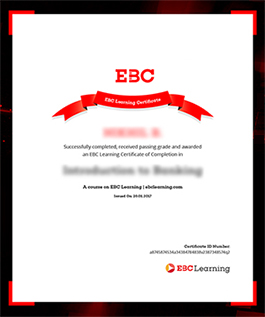3 Month — Certificate in Academic Legal Writing
Enrollment is Closed
Learn to write impactful papers, get published, and elevate your legal career in 3 months.
About Course
Want to get published?
A major reason legal papers remain unpublished isn’t poor grammar or citation style—it’s the absence of original thought and focused argument. Many papers merely summarize existing ideas without identifying or advancing a clear position. The foundation of a strong paper however lies in thinking clearly about what you want to say. This course teaches you just that.
This course takes a distinctive approach to building that foundation. You will learn the craft of academic legal writing through engagement with major debates in the common law tradition—on rights and duties, the nature of obligation, the origins of contract, tort, restitution, property and theories such as Ernest Weinrib’s conception of corrective justice. By studying how scholars argue, critique, and build conceptual frameworks, you will learn to do the same in your own writing.
To support this process, the course is structured around the instructor’s 4-Step Critique Development & Writing Process:
- Active Reading & Annotation – where you mark and mind-map an article or case to understand the structure of reasoning. Simultaneously trying to identify the author’s core thesis — finding the claim the author or judge is making.
- Brainstorming Critique Points – exploring ways to challenge, improve, or expand the argument – deciding what you want to say in response. Here you arrive at your response thesis.
- Outlining the Structure – creating a simple blueprint for your response.
- Editing & Refining – writing and rewriting until your idea comes through clearly and persuasively.
Throughout the course, we will read, annotate, and discuss influential works in common law scholarship—from classical texts on rights and duties to contemporary debates in private law theory. You will learn not just to understand these arguments, but to enter them—developing your own voice within the ongoing dialogue that shapes common law reasoning.
Once you have identified your own thesis, we will turn to structure and form—ensuring your writing meets the standards of academic publication. By the end of the course, you will have produced a tightly reasoned and original legal essay that could form the basis of a publishable paper.
Enrollment is Closed

You see, fear is a fighter's best friend. You know, but it ain't nothing to be ashamed of. See, fear keeps you sharp, it keeps you awake, you know, it makes you want to survive.
— Rocky Balboa from the movie Rocky- COURSE SCHEDULE
- Week 1
- ⚑ Live Class 1: Orientation/Introduction to the Course (Sat. 7th Feb 2026 )
- ⦿ Live Class - Recording
- ▶️ 1. Welcome to the course: how this legal writing course is organised and why it works
- ▶️ 2. Types of legal writing – purpose, audience, and form
- ▶️ 3. Writing comments in response to legal scholarship
- 📚 Pre-class readings - Holmes
- ☆ Feedback
- Week 2
- ⚑ Live Class 2 (Sat 14th Feb 2026 )
- ✍️ Assignment - Holmes
- 📚 Holmes' Paper Outlines & Notes
- Week 3
- 📚 Pre-class readings
- ⚑ Live Class [Session Number(s)] ([Date & Time])— [Topic Name]
- ✍️ Assignment
- Week 4
- 📚 Pre-class readings
- ⚑ Live Class [Session Number(s)] ([Date & Time])— [Topic Name]
- ✍️ Assignment
- Week 5
- 📚 Pre-class readings
- ⚑ Live Class [Session Number(s)] ([Date & Time])— [Topic Name]
- ✍️ Assignment
- Week 6
- 📚 Pre-class readings
- ⚑ Live Class [Session Number(s)] ([Date & Time])— [Topic Name]
- ✍️ Assignment
- Week 7
- 📚 Pre-class readings
- ⚑ Live Class [Session Number(s)] ([Date & Time])— [Topic Name]
- ✍️ Assignment
- Week 8
- 📚 Pre-class readings
- ⚑ Live Class [Session Number(s)] ([Date & Time])— [Topic Name]
- ✍️ Assignment
- SELF-PACED COURSE VIDEOS
- Step 1: Introduction to critical reading
- ▸ Reading for argument – how to identify the author’s central claim
- ▸ Reading judgments – finding the judge’s main point and reasoning
- Step 2: Arriving at your response thesis
- ▸ Your legal paper's core: understanding and developing thesis statements
- ▸ How to find something worth writing about?
- Step 3: Writing for the reader: clarity, structure, and flow
- ▸ Impersonate your reader – the skill that changes everything
- ▸ How to actually start writing: the three draft method
- ▸ Structure of your paper
- ▸ Deductive and inductive reasoning
- ▸ Effective use of quotations in legal writing
- Step 4: Editing
- ▸ Your writing becomes clear and strong when you can no longer take away
- Best practices for improving your legal writing
- ▸ Read from primary sources
- ☆ Feedback
FAQs
This course is ideal for law students, junior associates, and early-career researchers who wish to master the art of academic legal writing while deepening their understanding of common law reasoning.
Join us for this intellectually stimulating journey into the heart of the common law. Learn to think critically, write with purpose, and contribute meaningfully to the ongoing debates that define the law.
Legal writing is the cornerstone of serious legal thought. The ability to read deeply, argue precisely, and write persuasively distinguishes a capable student from an emerging scholar. Whether you are exploring constitutional principles, corporate responsibilities, or the moral logic of private law, this course will teach you how to translate complex ideas into structured, impactful writing.
Engaging and Structured Videos: Learn at your own pace through concise video lectures by experts in legal writing and research. Each video (2–3 minutes long) explains concepts like legal reasoning, argument structure, citation practice, and the use of precedent in common law writing.
Interactive Live Classes: Participate in eight live sessions where you can interact directly with the instructor. Ask questions, review writing samples, and receive practical guidance on improving your legal analysis and style.
Writing Exercises and Model Solutions: Apply your learning with guided writing tasks—ranging from case comments and essays to argument briefs. Each assignment is followed by detailed solutions or commentary videos, helping you refine your writing.
Q&A for Knowledge Mastery: Test your understanding with assignments and reflection questions at the end of each unit. These help ensure you grasp both the theory and the application of legal writing principles.
Learn by reading, watching, and writing—within one integrated platform.
Your course on EBC Learning brings together authoritative materials from:
- EBC Reader: Access essential texts on legal writing and research.
- SCC Online: Explore landmark cases and academic references used in writing exercises.
- Expert-led videos and live sessions: Understand how to translate theory into strong analytical writing.
Follow guided readings, examine cases, and reinforce concepts through interactive videos and exercises—all in one seamless experience.
- Live classes for personalised learning
- Practical writing assignments and feedback
- Guidance on using precedents and citations effectively
- Exclusive checklists on structuring arguments, writing case comments, citation & referencing, editing & proofreading
- Sample academic papers and case analyses
- 10+ professionally recorded videos (not Zoom recordings)
- Integration with EBC Reader and SCC Online
- Mentorship and community learning via The Edict Learning Community
At EBC Learning, we offer placement assistance rather than direct placement. Our dedicated career support team helps you connect your learning outcomes with real opportunities in the legal field.
Through personalised guidance, networking sessions, and mentorship, we help you identify pathways in academia, research, publishing, litigation, and policy—careers where strong legal writing and analytical skills are highly valued.
While we don’t guarantee placements, we empower you with practical tools, insights, and professional exposure that significantly enhance your employability and confidence to pursue rewarding career paths.
Yes, individuals from non-law backgrounds can enrol in this course. While it is primarily designed for law students, graduates, and legal professionals, the course is also suitable for researchers, academicians, and professionals from related disciplines who wish to understand how legal reasoning and writing work within the common law tradition.
The course begins with fundamental concepts of legal reasoning, structure, and citation, making it accessible even to those without prior legal education. Participants from fields such as public policy, social sciences, or business who engage with legal materials in their work will find it especially valuable.
Still have questions?
Enrollment is Closed
Instructors

Abhinandan Malik
Editor Publications & Director, EBC Learning
Abhinandan Malik is Editor (Publications) & Director at EBC, India's top law publisher. He is a graduate of NALSAR University of Law with an LLM from the University of Toronto. He has 10+ years of editorial experience, conceptualising, guiding and editing publications at EBC.

Pradyumna Anil Purohit
Instructor & Editor, EBC Learning
Pradyumna is a Course Author, Instructional Designer, and Innovator at EBC Learning. He is also the Chief Academic Consultant at Mahatma Gandhi Centre for Peace Studies, O.P. Jindal Global University. He was formerly an Assistant Professor at Jindal Global Law School.

There are two things wrong with almost all legal writing. One is its style. The other is its content. That, I think, about covers the ground.
— Fred RodellCertificate
Complete this course and exercises to earn a certificate. Share it with your friends, colleagues, and employers.

Limit Reached or Trial Expired
You have reached the limit of 2 audit enrollments or your trial period has expired.





